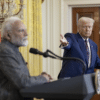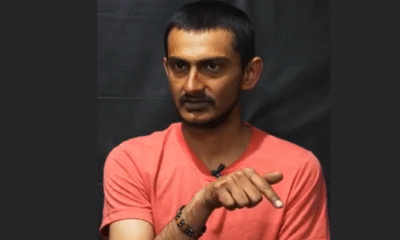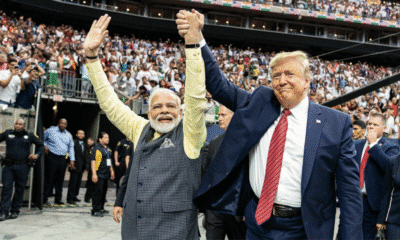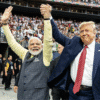News
Jairam Ramesh Criticizes Modi’s Independence Day Address: An Assault on Ambedkar’s Legacy
In a scathing critique of Prime Minister Narendra Modi’s Independence Day address, Congress General Secretary Jairam Ramesh has accused the Prime Minister of grossly misrepresenting India’s legal history and maligning the legacy of Dr. B.R. Ambedkar. Modi’s speech, described as his longest in over a decade, called for the replacement of the current civil laws with a so-called secular civil code, a statement that Ramesh and other critics view as deeply problematic.
During his address from the historic Red Fort, Modi asserted that India’s existing civil code, which governs personal matters such as marriage and inheritance, is fundamentally flawed and discriminatory. He argued that the country needs a secular civil code to rectify what he described as the communal nature of current laws.
“The present civil code, in many ways, is communal and divides the nation,” Modi said. “To move towards a secular civil code is essential for ending religion-based discrimination and the societal disconnect it fosters.”
Jairam Ramesh, however, vehemently opposed this view. In a pointed rebuke, Ramesh accused Modi of distorting historical facts and undermining the contributions of Dr. Ambedkar, who played a pivotal role in reforming Hindu personal laws during the mid-20th century. Ramesh’s condemnation was voiced on social media, where he labeled Modi’s remarks as an “insult to Dr. Ambedkar,” criticizing the Prime Minister’s capacity for “malice, mischief, and maligning” historical achievements.
The non-biological PM's capacity for malice, mischief, and maligning of history knows no bounds. It was on full display today from the Red Fort.
To say that we have had a "communal civil code" till now is a gross insult to Dr. Ambedkar, who was the greatest champion of reforms…
— Jairam Ramesh (@Jairam_Ramesh) August 15, 2024
“The non-biological PM’s capacity for malice, mischief, and maligning of history knows no bounds,” Ramesh wrote on X. “To claim that our current legal framework is ‘communal’ is a direct affront to Dr. Ambedkar, who spearheaded significant reforms despite intense opposition from the RSS and Jan Sangh.”
The Prime Minister’s call for a uniform civil code is not new, as it has been a recurring theme in BJP’s political agenda. The uniform civil code proposes a single set of laws for all citizens, irrespective of their religion. Modi’s recent statements seem to suggest that the current legal framework perpetuates division and inequality, a view that many see as both divisive and politically motivated.
Congress President Mallikarjun Kharge also weighed in on the controversy, accusing the BJP of fostering divisive ideologies. At the AICC headquarters, Kharge criticized the RSS and its affiliates for perpetuating a “divide-and-rule” mentality reminiscent of British colonial strategies. He emphasized the importance of unity in diversity as a cornerstone of Indian strength, contrasting sharply with Modi’s rhetoric.
The response from other political figures was similarly critical. RJD MP Manoj Kumar Jha expressed disappointment, stating that Modi’s speech revealed a fundamental disconnect with the responsibilities and sensitivities required of a Prime Minister. Jha suggested that even a well-intentioned message could be undermined if delivered with perceived insensitivity and misjudgment.
In essence, Modi’s Independence Day speech has sparked a fierce debate about the future of India’s legal and social fabric. Critics argue that the call for a secular civil code is less about reform and more about exacerbating communal divisions, while supporters view it as a necessary step towards a more uniform and equitable legal system. The ongoing discourse underscores the contentious nature of India’s quest for legal and social harmony in a diverse and complex society.










































